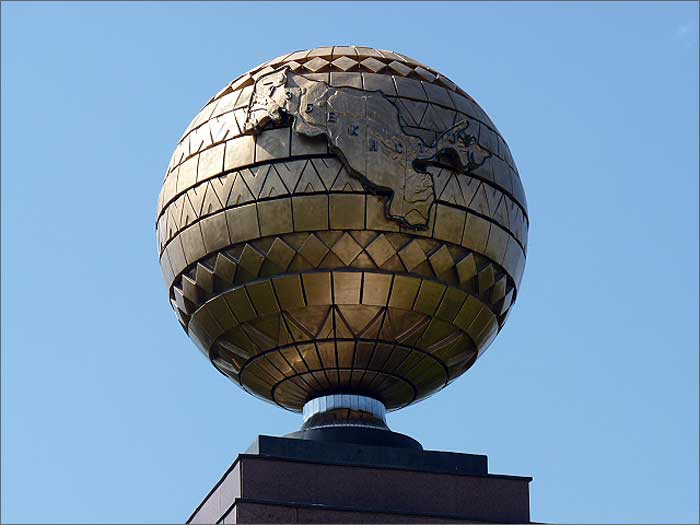
Is Uzbekistan’s President ‘Testing the Waters’ for a New External Policy?
Publication: Eurasia Daily Monitor Volume: 10 Issue: 142
By:

On July 6, the pro-government website 12news.uz published an article by Uzbekistani Professor Rustamjon Abdullaev entitled, “Uzbekistan must join NATO and stake territorial and other claims against some former Soviet Union countries.” In his article, Abdullaev articulates Tashkent’s strong opposition to the construction of hydroelectric plants in Tajikistan and Kyrgyzstan. The piece also stresses that Uzbekistan is the rightful successor to the historical entities of the Khanate of Kokand, Khanate of Khiva and the Bukhara Emirate. Therefore, he argues, modern day Uzbekistan should include the territories of Kyrgyzstan, Tajikistan, Turkmenistan and parts of Kazakhstan. Abdullaev’s article not only disputes Kyrgyzstan’s and Tajikistan’s right to exist as sovereign nations, but also denies its people the right to their ethnic identity. Finally, Abdullaev believes that Russia is not a good ally of Uzbekistan, and thus Tashkent should cut its ties to the Commonwealth of Independent States (CIS) and join the North Atlantic Treaty Organization (NATO) instead (12news.uz, July 6).
Abdullaev’s provocative article was taken down from the 12news.uz website on July 10. Attempts by the editor of the independent site Uznews.net to contact 12news.uz in order to find out why Abdullaev’s article was recently taken down were unsuccessful. The only contact information listed on the site (the e-mail address info@12news.uz) turned out to be a non-working address (Uznews.net, July 11)
According to Paul Goble, an American political scientist who extensively studies the countries of the former Soviet Union, the article could be “a testing of the waters—reflecting what some people think in Tashkent to see what they can get away with.” Goble added, “But more ominously, it may be an effort by some to shoot down the possibility of ties with NATO. After all the alliance doesn’t take [countries] in if they have border problems with their neighbors” (Author’s interview, July 17).
A somewhat diverging viewpoint comes from Daniil Kislov, the director of the news agency Ferghana, who believes that the publishing of Abdullaev’s article was “not a pure accident. There is total censorship in Uzbekistan, and such a politically charged article would not have been allowed to be published without permission from the government. I think that Tashkent wanted to test public opinion and the reaction of different countries” (Author’s interview, July 18). Sergei Ejkov, a journalist in Uzbekistan, largely agrees, noting that 12news.uz is curated by Alisher Azizhodjaev, a former press secretary to President Islam Karimov (UzMetronom.com, July 6).
“I am familiar with the works of Rustamjon Abdullaev. Unfortunately he is not a serious scientist,” Dr. Sergei Abashin, the chief of the Central Asia department of the Russian Ethnology Institute told Jamestown on July 18. “He often writes very strange things on the internet. I am sure that his opinion does not coincide with the views of the Uzbekistani authorities. But Tashkent could use him as a provocateur for checking the reaction of the international community,” Abashin argued.
According to Tashpulat Yuldaev, an Uzbek political scientist living in the United States, the Abdullaev article that appeared briefly on 12news.uz is consistent with President Karimov’s thinking and his policies. Yuldaev notes that at the end of last year, during his trip to Astana, Karimov stated that building a hydroelectric plant in the region without Tashkent’s consent might lead to armed conflict (Uznews.net, July 11).
It is clear from Uzbekistan’s foreign policy aims that Tashkent seeks to become the regional superpower. The idea of the historical region of Turkestan as a single common home for Central Asians is a recurring theme in the Uzbek president’s prolific writings. Indeed, on the central square of Uzbekistan’s capital of Tashkent there stands an unusual monument, which the local people call “the globe of Uzbekistan.” The monument consists of a stone sphere on a pedestal that has the outline of only one country on it—Uzbekistan—taking up almost half the planet. Moreover, according to new Uzbek historiography, the founder of the Uzbek state was Timur (Tamerlane), who in modern-day Uzbekistan is described as master of three parts of the world: Europe, Asia and Africa. In the recently built and staggeringly grandiose Timur Museum, there is a map showing the territories from which the great ruler levied tribute, including not only North Africa and northern India, but also a considerable part of modern Russia, including its present capital. Schoolteachers relate how this same Timur saved Russia from the Mongol yoke (Igor Rotar, “Under the Green Banner: Islamic Radicals in Russia and the Former Soviet Union,” Religion, State & Society 30(2), June 2002).
It should also be noted that just a cursory look at history reminds one that Uzbekistan has already had armed altercations with its neighbors. In 1998, Islam Karimov allowed rebel Tajik Colonel Mahmud Khudayberdiev’s tanks to enter northern Tajikistan through the Syrdarya region, but the takeover failed. Also, during the 1999 and 2000 excursions by armed fighters of the Islamic Movement of Uzbekistan (IMU) into Kyrgyzstan and Tajikistan, Karimov took it upon himself—without permission from Bishkek and Dushanbe—to bomb their territories, in some cases killing and maiming innocent citizens of the two neighboring countries (Uznews.net, July 11).
According to Tashpulat Yuldaev, in the last few years, the visibly aging Karimov has moved away from making public statements. As Yuldaev believes, when Islam Karimov speaks, speculations arise about his mental health and his perception of reality. In this situation, the Uzbekistani president often must “test the waters” before releasing his official statements (Uznews.net, July 11). And the provocative article penned by Rustamjon Abdullaev may have, indeed, served this purpose.
The fact that Abdullaev’s article was taken down from the 12news.uz website so quickly shows that it is too early now to speak about serious changes in Uzbekistan’s foreign policy. But it is possible to suppose that Tashkent is considering some shifts in its external relations.




